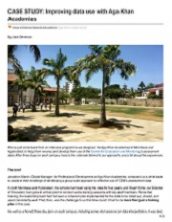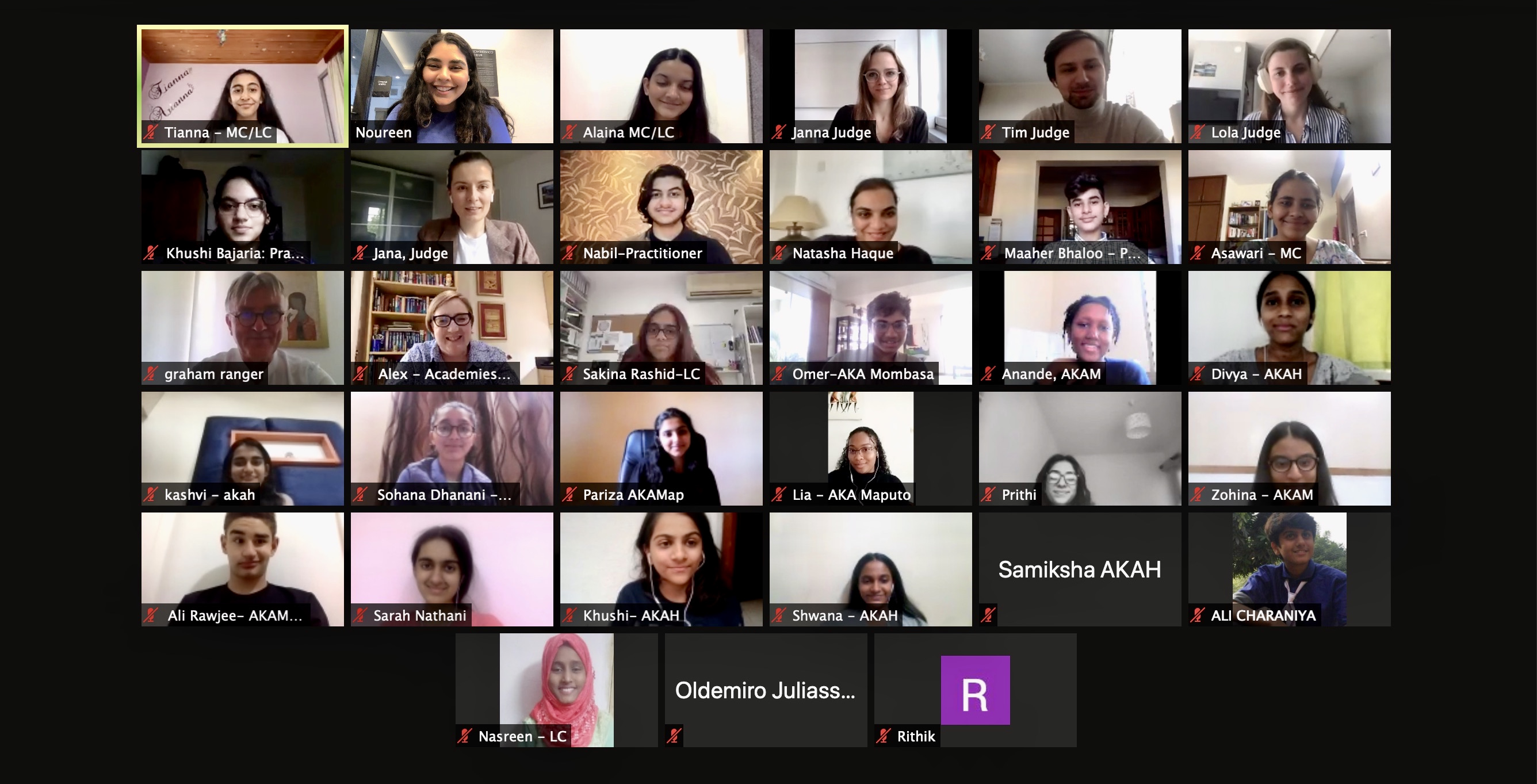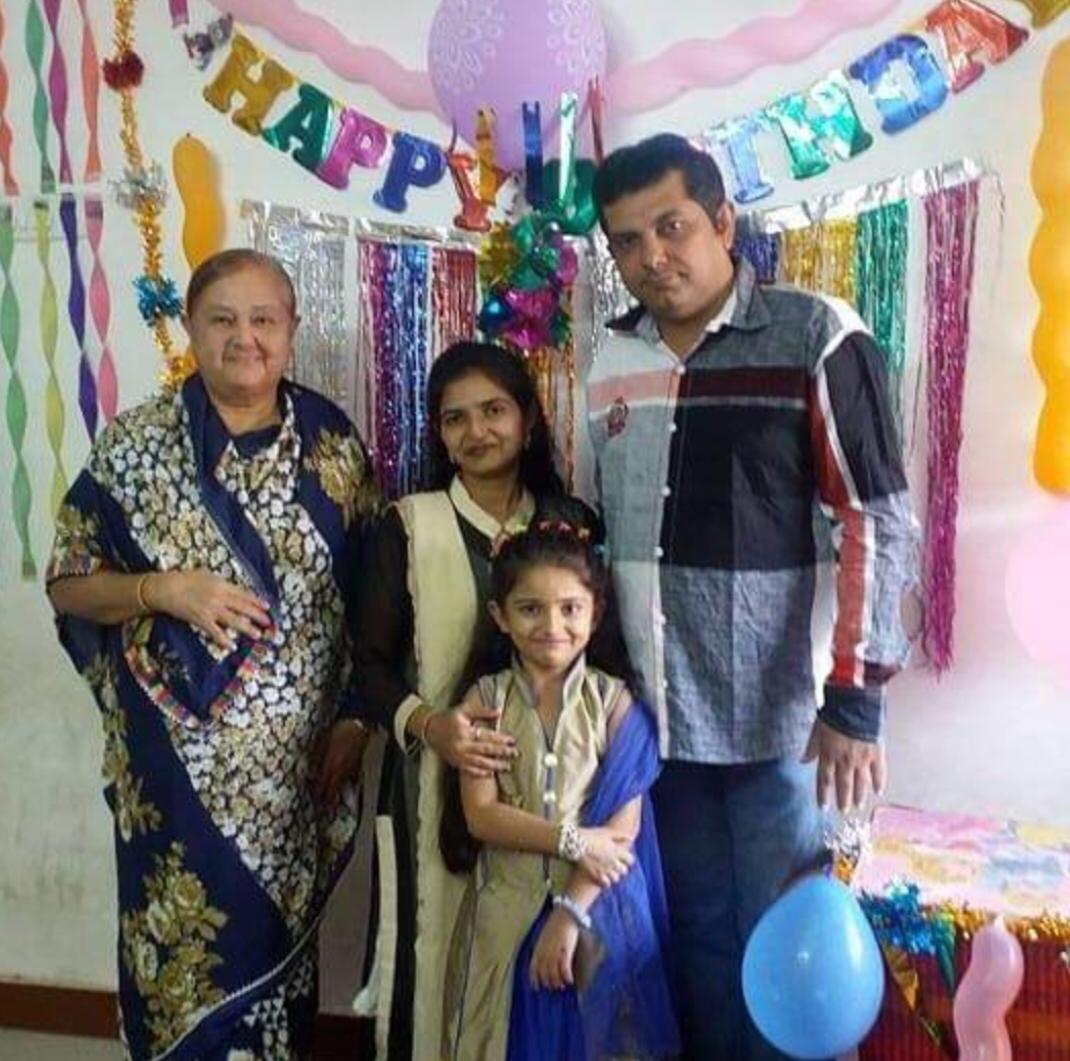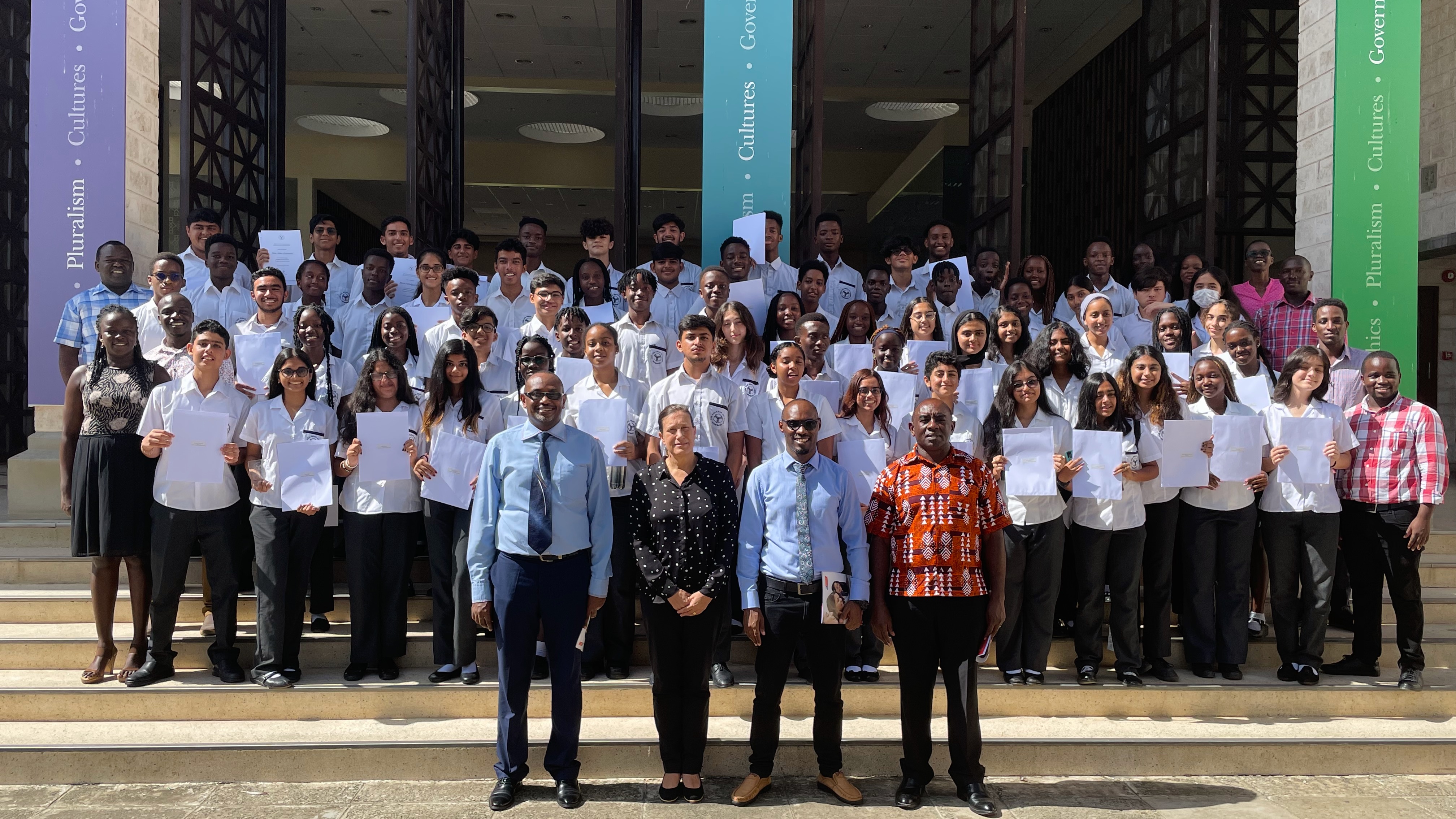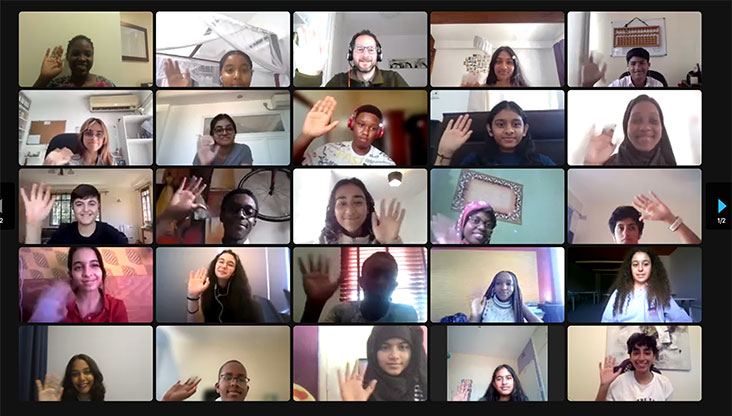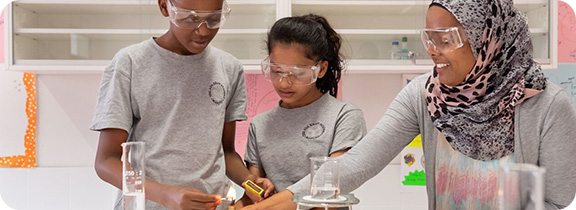
Middle Years Programme
The Aga Khan Academy Maputo is a Candidate School* for the Diploma Programme. The Academy is pursuing authorisation as an IB continuum school. These are schools that share a common philosophy — a commitment to high quality, challenging, international education that the believes is important for our students.
What is the MYP?
The MYP is a challenging and exciting inquiry-based curriculum that actively engages students in their learning by encouraging them to make connections between what they study and the wider world. The five-year programme offers students access to a curriculum that is broad and balanced, conceptual and connected. What matters is not absorbing facts that can be repeated but developing ways of thinking that can be applied to new situations.
There are 8 subject groups within the MYP. Here at the Aga Khan Academy in Maputo our students study Portuguese and English language and literature, Portuguese, English and, in MYP3, French language acquisition, humanities, sciences, mathematics, visual arts, design and physical and health education.
In addition to the academic subjects our MYP students also develop leadership skills, library research skills and initiate and participate in service with the community.
In the final year of the programme students complete a personal project that encourages them to strengthen their approaches to learning skills, consolidate prior and subject-specific learning and develop an area of personal interest. In the context of the Aga Khan mission, vision and values it also develops awareness of a community need and seeks to address it in a meaningful way. The personal project is challenging, motivational and interesting as each student develops a personal project independently.
MYP Learners
The MYP promotes open communication, based on mutual understanding and respect. It encourages students to become active, compassionate lifelong learners. The programme is holistic and as such is concerned with developing the whole person. Along with cognitive development, the programme addresses students’ social, emotional and physical well-being. Students are encouraged to become active and caring members of local, national and international communities who respect themselves, others and the world around them. They develop effective communication skills, social skills, self-management skills, research skills and thinking skills that will enable them to adapt to a range of contexts, as they make their way through life.
Assessment for learning
Teachers use a variety of assessment strategies to address the MYP subject-group objectives. The assessment for learning tasks include, among other things compositions, creating solutions or products in response to problems, essays, examinations, investigations, questionnaires, research tasks, performances, presentations, research task and reports.
In the fifth and final year of the MYP, to be eligible for the internationally recognized MYP certificate students must successfully complete eight eAssessments:
On-screen examinations in:
- Language and literature
- Individuals and societies (Humanities)
- Sciences
- Mathematics
- Interdisciplinary learning
ePortfolios (coursework) in:
- language acquisition
- physical and health education, arts or design
- the personal project
Students must also meet the school’s expectations for service and action.
The MYP bilingual certificate additionally requires successful results from on-screen examinations of:
A second language and literature instead of a course in language acquisition
The maximum total score for the IB MYP certificate is 56, with a grade from 1-7 assigned to each required eAssessment.
Students must achieve a total of at least 28 points, with a grade of ‘3’ or higher n each eAssessment component, to be eligible to receive the MYP certificate.
Transition to the IB Diploma (DP)
MYP subject groups form an important common foundation for all students and provide strong alignment with the six subject groups in the DP which follows. The two year DP course encourages depth and breadth of learning and builds on students’ prior learning experiences. This encourages them to become confident, independent learners. It also encourages students to develop their critical thinking skills, self-management and global mindedness. Further, research carried out on behalf of the IB demonstrates that successful DP graduates are much more likely to be enrolled at top higher education institutions than entrants holding other qualifications.
Please visit the Admission Requirements page or contact us to find out more about applying to the MYP programme at the Academy.
*Only schools authorised by the IB Organization can offer any of its four academic programmes: the Primary Years Programme (PYP), the Middle Years Programme (MYP), the Diploma Programme, or the Career-related Programme (CP). Candidate status gives no guarantee that authorisation will be granted. For further information about the IB and its programmes, visit http://www.ibo.org.
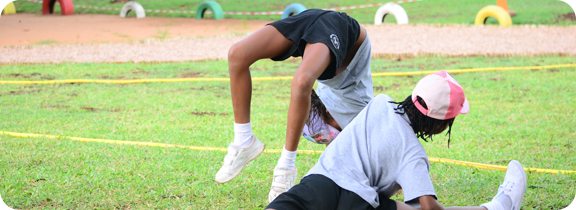
Co-curricular Programmes
Co-curricular programmes enable students to realise their potential in a variety of settings beyond the classroom. Students develop a sense of self-awareness and an understanding of school and community needs and opportunities. They also learn how to apply their gifts and skills to make a positive impact.
At the Academy, we believe in a balanced, rounded, comprehensive school experience. As this includes both academic and co-curricular experiences, we encourage our students to do their best both in and outside the classroom.
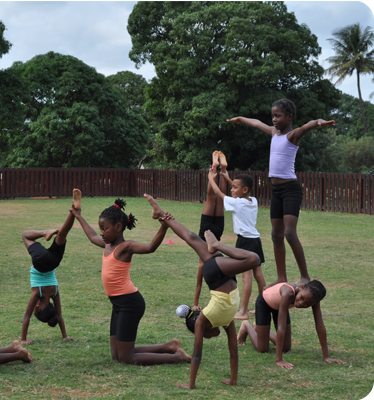 We will offer outstanding sports facilities that will include:
We will offer outstanding sports facilities that will include:
- swimming and diving pools
- cricket, soccer and hockey pitches
- basketball and volleyball areas
- tennis and squash courts
- dance studio
- gymnasium
- athletics tracks.
Children with special sporting gifts will be encouraged to develop their talents in every way. Children with special gifts in music, art or drama will similarly be encouraged through opportunities to practise and perform while at the Academy.
Our co-curricular programmes are clustered into three main streams, each with a different focus:
Creative expression
Whether through visual or performing arts, this cluster engages students to think creatively and express their identities and thoughts aesthetically. Through theatre, art, music and drama, students learn to work together and infuse their projects with values and lessons from other parts of their schooling. Individual and collaborative creative projects emphasise growth and development through personal challenge, ultimately resulting in achievable personal goals.
Action
The student as a reflective practitioner is a basic tenet of the action cluster. Through physical sport – both competitive and non-competitive – students are challenged in their physical growth, and learn values such as good sportsmanship, teamwork and ethical behaviour. We encourage them to extend themselves by trying different activities and working with teammates to pass on their knowledge. In line with developing the student as a whole, a healthy lifestyle complements and enhances academic achievement.
"The Academies will be concerned with the whole of the human being – mind, body and spirit – and with the broad range of human aspiration – intellectual, moral, artistic, physical and spiritual. The fact that these are residential academies will contribute enormously to these broad objectives, encouraging students to identify more completely with the school, to help lead it and shape its environment."
Citizenship
At the Academy, we encourage knowledge and understanding of humanity and civil society. Through their involvement in citizenship activities, students gain an understanding of the practical implications of their work and study. By collaborating with community groups on sustainable projects, they develop an appreciation for human rights and human dignity, and of how their actions impact the world around them.
To learn more about the Academy's programme, please visit the Academic Programme page.
The Aga Khan Academy, Mombasa Newsletter - August 2012
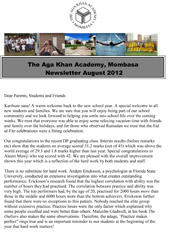
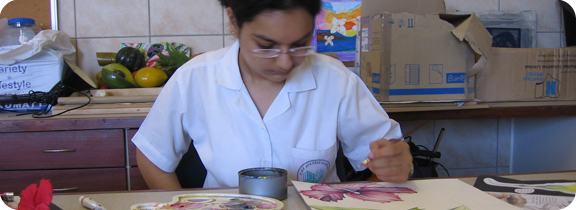
International Baccalaureate
The International Baccalaureate (IB) is a non-profit educational foundation, motivated by its mission to create a better world through education. IB programmes for students aged 3-19 help develop their intellectual, personal, emotional and social skills to live, learn and work in a rapidly globalising world.
Following in the footsteps of its sister schools in Mombasa, Hyderabad and Maputo, the Aga Khan Academy Dhaka plans to become an IB World School, subject to the necessary authorisations.
IB World Schools share a common philosophy – a commitment to improve the teaching and learning of a diverse and inclusive community of students by delivering challenging, high-quality programmes of international education that share a powerful vision.
Aims of the IB programme
Founded in 1968, the International Baccalaureate currently works with schools in 144 countries to develop and offer their programmes to over one million students.
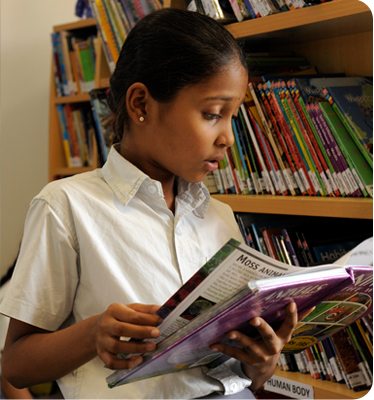 The IB mission statement declares:
The IB mission statement declares:
"The International Baccalaureate aims to develop inquiring, knowledgeable and caring young people who help to create a better and more peaceful world through intercultural understanding and respect. To this end the organisation works with schools, governments and international organisations to develop challenging programmes of international education and rigorous assessment. These programmes encourage students across the world to become active, compassionate and lifelong learners who understand that other people, with their differences, can also be right."
For further information about the International Baccalaureate and its programmes, please visit the IB website.
Students from across the Academies network participate in inaugural Climate and Environment Conference
Case Study: Improving Data Use with Aga Khan Academies
